Uncategorized
8 types of diving training systems in the world
Scuba Diving Training System
Maybe you have thought after your first non-professional diving experience that it is better to take professional diving training courses. But what should you do to start? This is a question that many newbies ask. Even for myself, this question had arisen at the beginning.
In this article, I would like to share my experiences with you and introduce you to 8 famous educational systems in the field of diving and offer you my suggestion for the best system.
1. PADI (Professional Association of Diving Instructors)
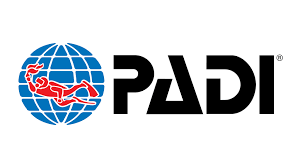
- One of the biggest and most well-known diving instruction companies in the world is PADI.
- From entry-level to expert credentials, it provides a variety of options.
- Divers all throughout the world can accept and recognize PADI certificates.
PADI Courses:
- PADI Open Water Diver: The entry-level training for beginners diver, teaching the essential abilities of scuba diving. It consists of open water dives, restricted water dives, and classroom sessions. With an Open Water Diver certification, divers can dive up to 18 meters (60 ft) deep on their own or with a companion.
- PADI Advance Open Water Diver: This curriculum improves diving abilities and provides new adventure dives, building on the Open Water Diver course. Five adventure dives are included, involving navigation and deep diving. Divers who are advanced in their diving can experience a wider variety of dive sites and activities.
- PADI Rescue Diver: This course covers rescue tactics, accident avoidance, and dive-related emergency management with an emphasis on diver safety and emergency response. Rescue Divers are considered more skilled and cautious divers since they are trained to aid and manage diving crises.
- PADI Divemaster: Dive masters are trained in leadership, dive planning, and dive activity management at the entry-level professional level. This is a prerequisite for becoming a PADI Instructor.Divemasters can lead specific PADI programs, help with training, and advise qualified divers.
- PADI Enriched Air Diver (Nitrox): The main objective of this training is to dive with enriched air nitrox, which extends the duration of no-decompression dives. It goes over the advantages and things to think about while utilizing enriched air. Certain nitrox mixes can be used by Enriched Air Divers to increase their bottom time.
- PADI Wreck Diver: Teaches the abilities and methods needed to dive near wrecks safely. Potential risks, wreck mapping, and entry approaches are covered. When using the appropriate safety measures, wreck divers can investigate submerged ships and other underwater structures.
- PADI Deep Diver: Focuses on decompression methods, planning, risks, and deep diving techniques. It enables divers to go down to depths that are higher than they can for fun. Deep Divers are able to organize and carry out dives down to 40 meters (130 feet) safely.
2. NAUI (National Association of Underwater Instructors)
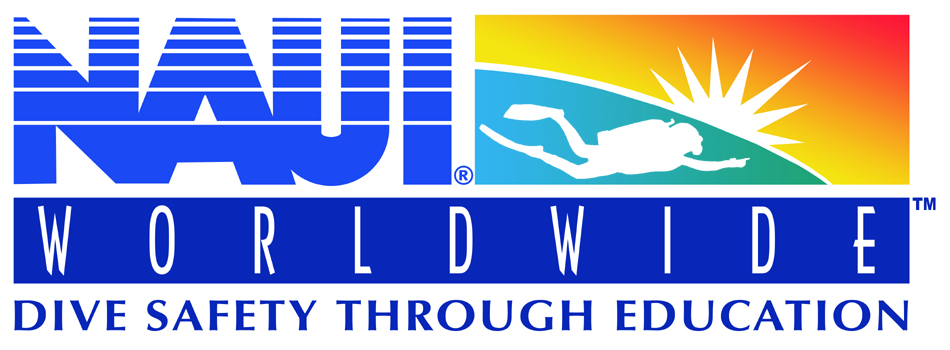
- Since 1959, NAUI, a nonprofit organization, has been offering diving education.
- It provides a wide variety of diving training, including as technical, leadership, and leisure courses.
NAUI Scuba Diving Courses:
- NAUI Scuba Diver: The introductory course for novices that covers the fundamentals of scuba diving It consists of open water dives, pool training, and classroom instruction. Scuba divers are authorized to descend to a maximum depth of 40 feet (12 meters) while being closely supervised by a NAUI Professional.
- NAUI Advanced Scuba Diver: This curriculum expands on the Scuba Diver course by teaching additional diving activities and skill enhancements. It involves more open water dives as well as specific instruction. With their increased diving expertise, advanced scuba divers may partake in a wider variety of diving activities.
- NAUI Master Scuba Diver: An advanced level for experienced divers, concentrating on developing abilities in varied diving settings. It consists of both required and optional dives. Master Scuba Divers may confidently go on difficult dives due to their high degree of proficiency.
- NAUI Rescue Scuba Diver: This course covers rescue tactics, self-rescue, and helping other divers in difficulty, with an emphasis on accident avoidance and response. Trained to manage diving crises and promote a safer diving environment, rescue scuba divers
- NAUI Divemaster: Divemasters are trained in leadership, dive planning, and dive activity management at the entry-level professional level. This is a prerequisite for becoming a NAUI Instructor. In addition to leading specific NAUI programs, divemasters can help with courses and guide qualified divers.
- NAUI Nitrox Diver: focuses on enriched air nitrox diving, which extends the duration of no-decompression dives. It goes over the advantages and things to think about while utilizing enriched air. Nitrox divers can prolong their bottom time by using particular nitrox mixes.
- NAUI Technical Diver Courses (e.g., Tech 1, Tech 2): Divers interested in technical diving, such as extended range diving, mixed gas diving, and advanced decompression techniques, should take these courses. Technical divers are qualified to perform dives that go beyond what is considered recreational diving.
3. SSI (Scuba Schools International)

- Divers of all skill levels can receive instruction from the reputable diving certification organization, SSI.
- With its e-learning courses and digital training resources, SSI emphasizes flexible learning.
SSL Scuba Diving Course:
- SSI Open Water Diver
- SSI Advanced Adventurer
- SSI Stress and Rescue
- SSI Dive Master
- SSI Enriched Air Nitrox
- SSI Deep Diving
- SSI Wreck Diving
4. CMAS (Confédération Mondiale des Activités Subaquatiques)
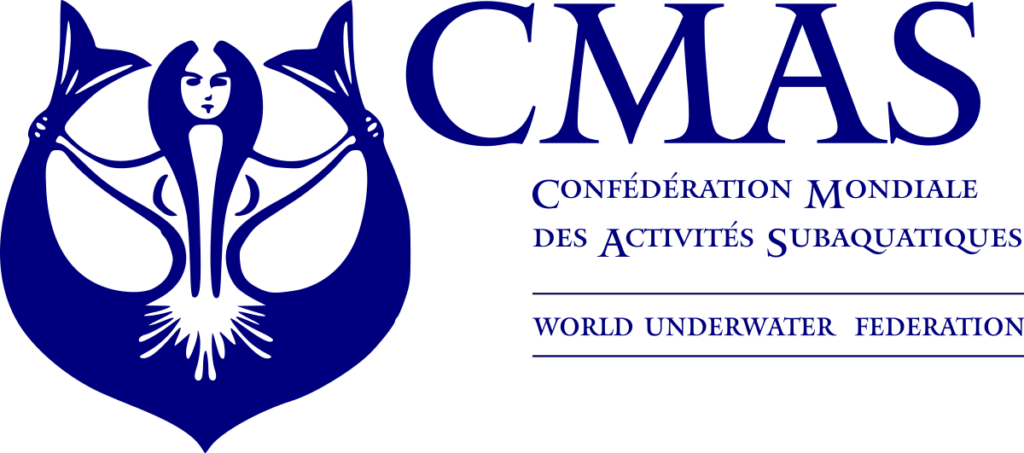
- An international organization called CMAS certifies divers and encourages activities conducted underwater.
- Certifications from CMAS encompass a variety of diving specializations and are accepted worldwide.
CMAS Scuba Diving Courses:
- CMAS One-Star Diver: The introductory course, intended for novices, covers theoretical information, safety procedures, and fundamental scuba diving abilities. One-Star Divers are authorized to descend as low as 20 meters (66 feet) with a partner.
- CMAS Two-Star Diver: This course expands on the One-Star course by introducing more sophisticated diving methods, improved navigational abilities, and new theoretical information. Divers who hold two stars are more proficient and may engage in a wider variety of diving activities.
- CMAS Three-Star Diver: The advanced level is designed for experienced divers and covers specialist topics including night diving, deep diving, rescue procedures, and more. Divers with three stars are extremely proficient and confident when taking on difficult dives.
- CMAS Specialties (e.g., Nitrox, Underwater Photography): Divers can concentrate on particular interests by enrolling in one of the many specialized courses offered by CMAS, which include underwater photography, diving with enriched air (Nitrox), and more. Divers with specialty certificates are more knowledgeable and proficient in certain areas of diving.
- CMAS Dive Leader: At the leadership level, divers get the skills necessary to organize and oversee dives, manage teams, and support instructors during instruction. Dive Leaders may help ensure that diving activities are safe and enjoyable by guiding divers and helping with courses.
- CMAS Instructor: The professional level, where experienced divers get qualified to teach CMAS courses. The training of the upcoming generation of divers is mostly dependent on the instructors. Divers can receive certification at different levels from instructors based on their expertise and credentials.
- CMAS Technical Diving Courses (e.g., Technical Diver, Trimix Diver): CMAS provides technical diving training for persons interested in advanced and specialized diving activities, including deep diving and the usage of mixed gases. Technical divers get training to safely perform more difficult and sophisticated dives.
5. SDI/TDI (Scuba Diving International/Technical Diving International)
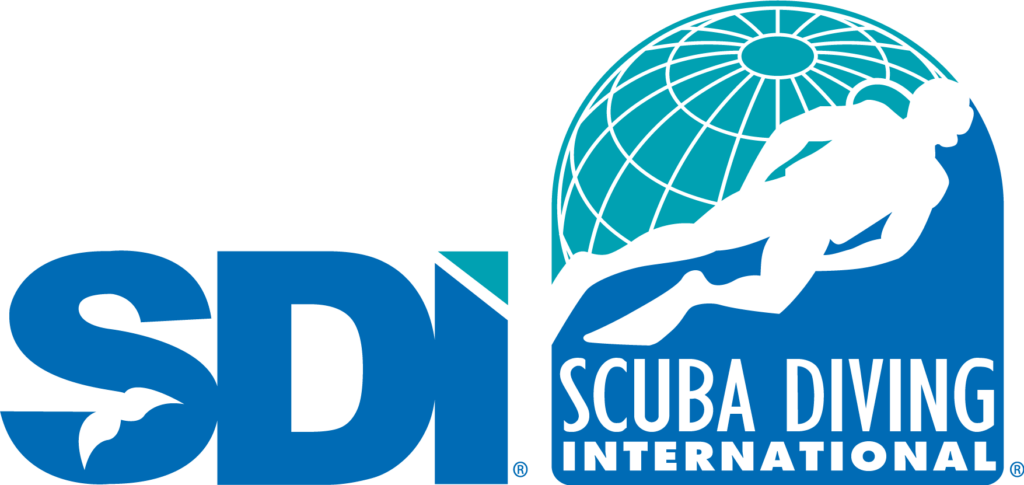
- While TDI focuses on technical diving instruction, SDI provides courses for recreational diving.
- Technical diving enthusiasts as well as experienced divers are catered to by SDI/TDI certifications.
SDI Scuba diving Courses:
- SDI Open Water Scuba Diver
- SDI Advanced Adventure Diver
- SDI Rescue Diver
- SDI Divemaster
TDI Technical Diving Courses:
- TDI Advanced Nitrox Diver
- TDI Decompression Procedures Diver: explains the fundamentals of diving for decompression. Planning for decompression, switching gases, and using decompression gases are all covered. Decompression Procedures: Divers with staged decompression pauses may organize and carry out dives.
- TDI Advanced Trimix Diver: Advanced technical diving training that incorporates the use of helium in the breathing gas combination. It is intended for divers who want to go deeper and farther. Advanced Trimix Divers can do dives with mixes based on helium to improve depth and control over decompression.
- TDI Rebreather Courses (e.g., Advanced Mixed Gas CCR): For divers who are interested in closed-circuit rebreathers (CCR), TDI provides training. These courses address advanced mixed gas diving utilizing CCR technology. With less gas used and longer dive periods, rebreather divers can explore undersea ecosystems.
6. ACUC (Association of Canadian Underwater Councils)
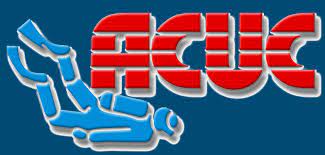
- An international diving certification organization, ACUC is well-known.
- In addition to teachers and leadership positions, it offers training for recreational divers.
ACUC Scuba diving courses:
- ACUC Open Water Diver
- ACUC Advanced Open Water Diver
- ACUC Rescue Diver
- ACUC Dive Master
- ACUC Nitrox Diver
- ACUC Ice Diver: intended for scuba divers who want to investigate seas coated with ice. It goes over safety precautions, specialized gear, and cold climate diving methods. Ice divers receive special training to appreciate the special difficulties of ice diving while navigating safely.
- ACUC Cave Diver: For scuba divers who want to investigate caverns underwater. This training includes cave-specific safety protocols, navigation, and specialist equipment. Cave divers receive training so they can explore and traverse underwater cave systems in a safe manner.
7. BSAC (British Sub-Aqua Club)
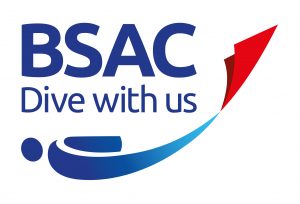
- Founded in 1953, BSAC is a diving organization situated in the United Kingdom.
- It prioritizes club-based diving activities and provides a variety of diver training courses.
BSAC Scuba diving Courses:
- BSAC Ocean Diver: The entry-level training for novices, including fundamental scuba diving abilities, safety procedures, and theoretical information. Open water dives and pool sessions are part of it. Ocean divers can descend as deep as 20 meters (66 feet) in open water with a companion.
- BSAC Sports Diver: This curriculum adds more sophisticated diving techniques, navigational abilities, and theoretical understanding to the Ocean Diver training. Sports Divers can engage in a wider variety of diving activities and possess improved abilities.
- BSAC Dive Leader: the leadership level, where divers gain skills in group leadership, dive planning and management, and training support. This is a prerequisite for becoming a BSAC Instructor. Dive Leaders may lead dives, help with instruction, and make diving enjoyable for other people.
- BSAC Advanced Diver
- BSAC First Class Diver:This course is intended for very experienced and proficient divers and is the highest non-instructional grade in BSAC. It entails putting diving theory, abilities, and rescue tactics to the test. First Class Divers are acknowledged for their extraordinary diving skills and expertise.
- BSAC Practical Rescue Management: Concentrated on incident management, collaboration, and rescue procedures. It explains how to respond to diving crises both on land and in the water. Advanced rescue techniques and expertise are acquired by divers to improve safety when diving.
- BSAC Compressor Operation and Maintenance: An advanced training designed for individuals who wish to comprehend and service diving compressors. It addresses normal maintenance, troubleshooting, and safety. After passing, people are qualified to use and maintain diving compressors in accordance with safety regulations.
8. GUE (Global Underwater Explorers)
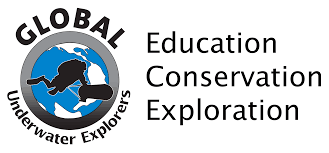
- Founded in 1953, BSAC is a diving organization situated in the United Kingdom.
- It prioritizes club-based diving activities and provides a variety of diver training courses.
GUE Scuba Diving Courses:
- GUE Fundamentals: The basic training required of all GUE divers, with a focus on propulsion, trim, and buoyancy control It offers a strong foundation for more complex technical diving. Divers who successfully complete the course can enroll in GUE’s more advanced offerings.
- GUE Recreational Diver Levels (e.g., Rec 1, Rec 2): Recreational classes that build on the Fundamentals. They consist of team diving activities, dive planning, and skill development. Recreational divers are capable of more difficult recreational dives and are skilled in the fundamentals.
- GUE Tech Diver Levels (e.g., Tech 1, Tech 2): Advanced decompression, gas planning, and complicated dive situations are covered in technical diving courses. These programs get divers ready for long-range and deep diving. Tech Divers are capable of performing dives that call for several gas mixes and staged decompression pauses.
- GUE Cave Diver Levels (e.g., Cave 1, Cave 2): training on specialized cave diving with an emphasis on gear, methods, and safety in settings overhead. Cave 2 is more sophisticated than Cave 1, which serves as an introduction. Underwater cave systems are safe for cave divers to explore and navigate.
- GUE Rebreather Diver Levels (e.g., RB80, JJ-CCR): courses aimed at divers who are interested in CCRs, or closed-circuit rebreathers. Training includes maintenance, gas management, and CCR-specific skills. Breather By utilizing CCR technology, divers may enjoy longer dive periods while consuming less gas.
- GUE Instructor Levels (e.g., Fundamentals Instructor, Tech Instructor): courses at the instructor level for anyone who wish to instruct GUE classes. Teachers go through a rigorous mentoring and training program. GUE courses are taught at different levels by trained instructors who support uniform and superior diving instruction.
- GUE Project Baseline Diver: prepares divers to work on Project Baseline, a global project of GUE to record and observe underwater habitats. It addresses data gathering methods and survey approaches. Project Baseline Divers have the ability to take an active role in environmental monitoring initiatives.
Which diving training system should you choose and why?
You may be confused among all this information and different courses, but don’t worry, if you look a little more closely, they are all in the same courses and have the same starting and ending point, although in this article, I have the opportunity to explain all the courses. I did not have different education systems. But I can say this in general that there is not much difference except for the things I will mention below.
from my point of view PADI Widely recognized globally, with a large network of affiliated dive centers worldwide.
But if you are looking for something specific like ice and cave diving, then I will suggest going to the GUE, BSAC, and ASUC training systems.
If you have any questions about different courses in Dubai, I will be happy to help you and share my experiences with you.
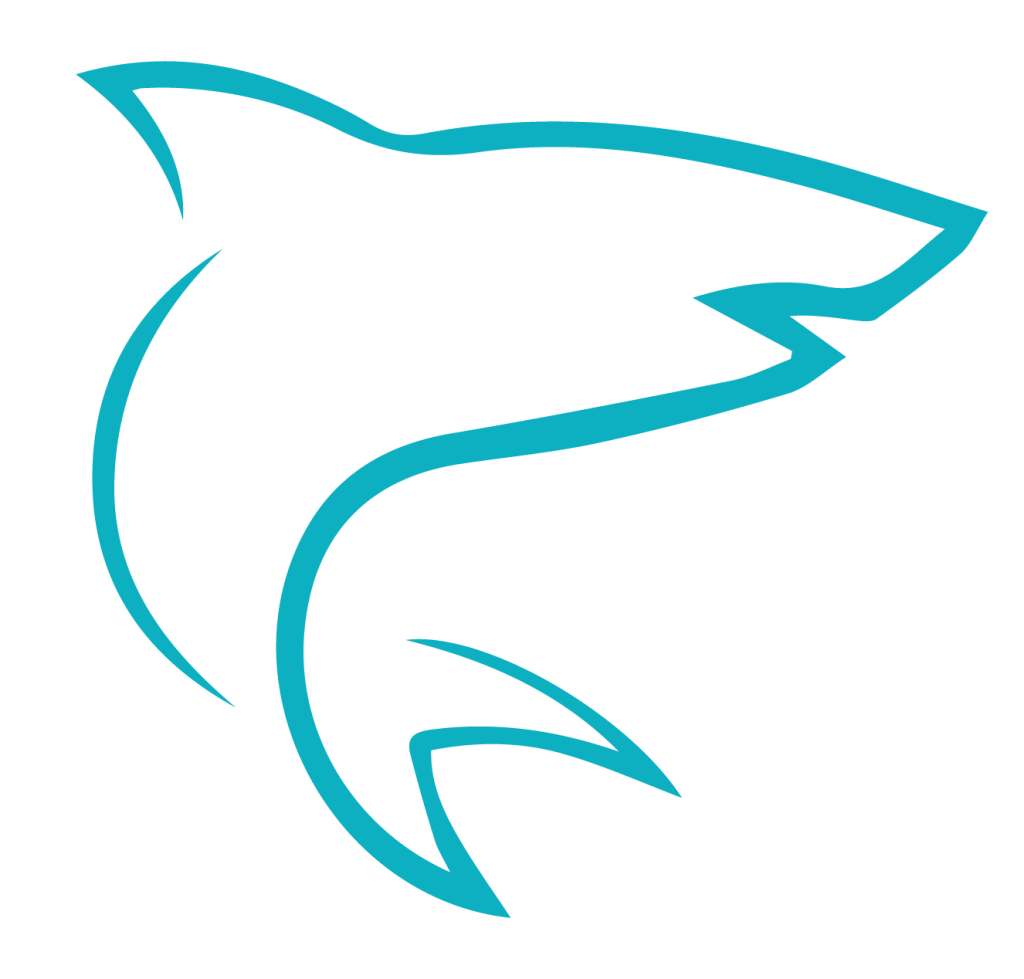
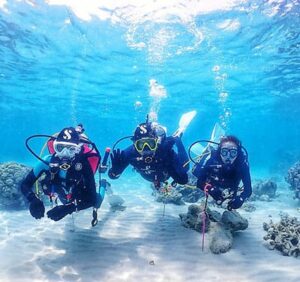
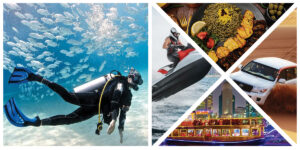
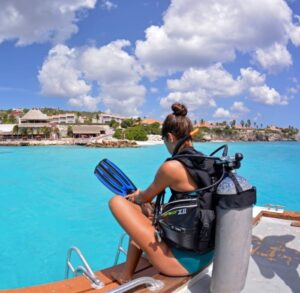
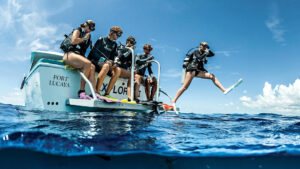
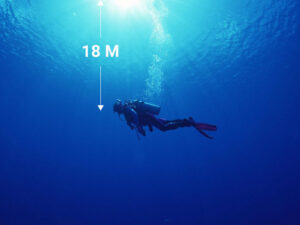
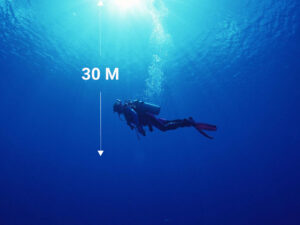
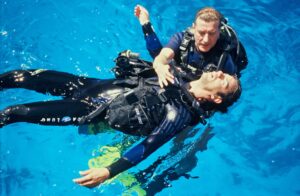
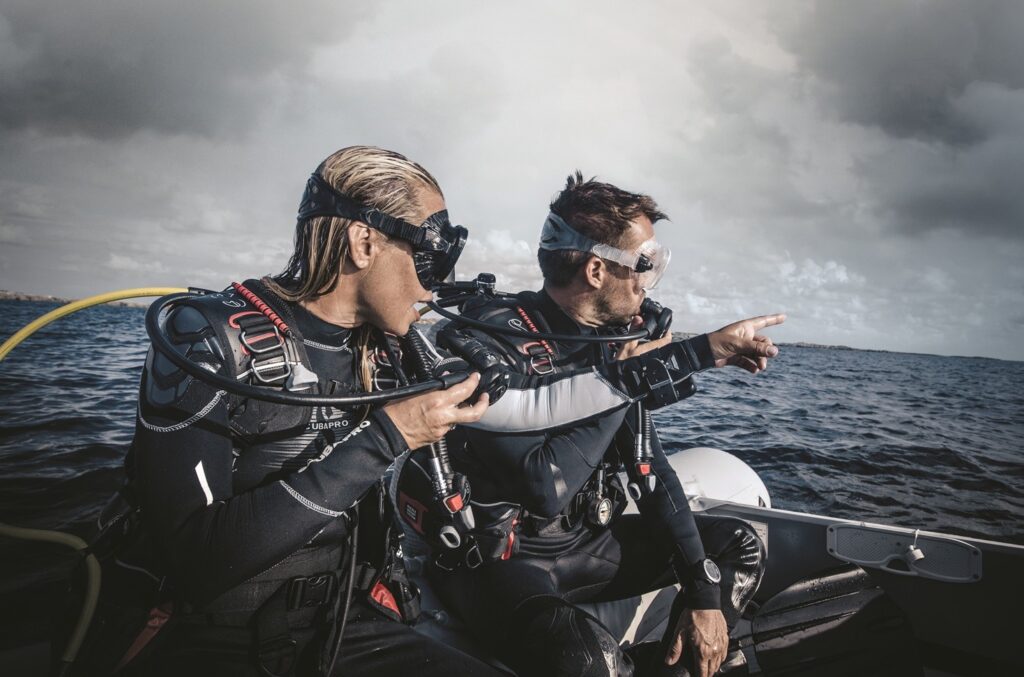

So informative. I new about PADI only
I learned from it